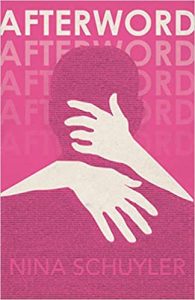AI for Today’s Writer
Today’s post is by Nina Schuyler.
With ChatGPT creating stories and essays in seconds, many writers, including me, are undergoing a profound existential crisis, wondering if we’re in the process of being vanished. At the PEN America Literary Awards, David Sedaris said, “I don’t think anybody’s job is safe.”
We’re at an inflection point, and there is a sense that everything is different now. ChatGPT reached 100 million active users two months after launch and has more than 13 million daily visitors as of 2023. With the genie out and running madly, hair on fire, the question is not how to stuff it back in the bottle but what do you want from AI?
Claiming some dominion over this powerful technology might alleviate anxiety. A kaleidoscope of options—rapidly growing—is available: translating, editing, researching, copyediting, and the biggie, creating content.
Each AI possibility brings with it an ethical decision: to use or not to use. At what point does the finished product no longer feel like your own? Every writer will have to grapple with this, and it’s likely dependent on what you’re writing: fiction, blog posts, newsletters, articles, and on and on.
Here are 10 AI-writerly tools (plus bonus):
ChatGPT, created by OpenAI, appeared in November 2022 and changed it all. With one prompt, the artificial intelligence chatbot analyzes the internet’s vast amount of data (including your published work), looks for patterns, and generates text. You can ask it to write essays and stories, make recommendations, and conduct research. Some of the prompts I’ve tried include: explain quantum physics; where do I find guest post opportunities?; what happened to President Garfield?; how does a district attorney investigation work?
“GPT” stands for Generative Pre-Trained Transformer, and what is generated is a summary. Ted Chiang calls it “a blurry jpeg of all text on the web.”
Cost: Free, available when demand is low; standard response speed
Premium: Available when demand is high; faster response speed; priority access to new features. $20 per month.
ChatGPT, Jasper and the other AI chatbots require a prompt to generate content. A prompt is a short sentence or phrase that AI responds to, but it can be hard to write. Promptly is a Chrome extension that provides you with predefined prompts. You can use this tool as a starting point to write your own prompts or find one that works for you.
Cost: Free
- Sonix.ai
Do you have an audio or video file that needs to be transcribed to text? This is your AI tool. It can handle 38 plus languages and is surprisingly fast and accurate.
Cost: Standard: $10/hour
Premium: $5/hour, $22/per user/month
As an extension for Chrome, this AI tool checks spelling, grammar, and punctuation, similar to Grammarly. It also makes suggestions for diction and style.
Cost: Free
This AI tool works as you write, suggesting spelling, punctuation, syntax, and when you double-click on a word, offers synonyms. Unlike Grammarly or Quillbot, it supports more than 25 languages. It also has a rephrasing function to write in different styles, such as simpler, shorter sentences and more formal prose.
Cost: Free version corrects spelling, simple punctuation, and synonym suggestions
Premium: Rephrases and rewrites sentences based on a specified style: simpler, shorter, or more formal. $59.90/year
This AI tool helps you come up with ideas and expand your article. It highlights spelling and punctuation errors. The “spice” is a unique feature, allowing you to add content to your article. For instance, you can “spice” your work with a “statistic.” The AI tool finds a fact that supports your previous statement and gives you the source of the fact. You can “spice” your work with inspirational quotes, jokes, historical facts, analogies, counterarguments and more. The premium version gives you more, such as rephrasing text so it’s shorter, or more expansive.
Cost: Free for causal and formal tones.
Premium: $9.99/month
Sometimes a Twitter thread is about a topic of interest, but the string of comments is unwieldy. This bot collects the entire text and converts it into a simple article. Just reply to a tweet with @threadreaderapp unroll.
Cost: Free
Maybe your research involves translating documents from another language. Or you want to translate your work written in English into Spanish. This is your AI resource.
Cost: Free, 3 files/ month, upload files up to 5MB in size
Premium: $8.74/month; upload unlimited files; files up to 10MB in size
www. Deepl.com/translator
If you write a blog or newsletter, this AI tool generates content ideas. It can also write a skeletal structure and an introduction. If you’re lousy at writing captions or titles for YouTube videos or other social media, this AI tool does that, too.
Cost: Free: 3 AI runs/month
Paid: “Starter”: $5/ mo for 25 AI runs/month
The goal of this app, as you might have guessed, is to make your writing simpler. (A grade 6 reading level. Hemingway would probably be offended). It highlights in different colors complex sentences, adverbs, and verbs in the passive voice, suggesting that these should be fixed. It also highlights words that have a simpler alternative and tallies your “very hard-to-read sentences.”
Cost: For Mac and PC, $19.95
Bonus:
Not run by AI (as far as I can tell), you type in a word, and it spools out a long list of synonyms. Built by students and writers.
Cost: Free
Premium: $29.90/year for ad-free
Another one not run by AI (as far as I can tell). If you don’t own a typewriter but miss the sound of a vintage typewriter, you can use this tool and recapture the music of fingers typing. It automatically saves your writing and exports it to Google Drive, WordPress, and other places. You can choose the text color and font.
Cost: Free
With the world of AI tools rapidly expanding, this list is by no means exhaustive. Within a month, and probably less, there will be more options, and the ones listed here will be further refined. Where is all this going? What role will the creative human have in the future? These questions and others haunt me. (At the PEN Literary Awards, Sedaris added, “I am so excited to be dead in, like 20 years. Because there’s not much more of this I can take.”)
I’m not ready to concede. I’ll find an AI tool that suits me, that doesn’t feel unethical, so I can continue to write and call whatever I produce my own.

 Nina Schuyler teaches creative writing for Stanford Continuing Studies and the University of San Francisco. Her novel Afterword will be published in May 2023 by Clash Books. Her short story collection, In this Ravishing World, won the W. S. Porter Prize for Short Story Collections and The Prism Prize for Climate Literature and will be published by Regal House Publishing in 2024. Visit Nina at her website and on Twitter.
Nina Schuyler teaches creative writing for Stanford Continuing Studies and the University of San Francisco. Her novel Afterword will be published in May 2023 by Clash Books. Her short story collection, In this Ravishing World, won the W. S. Porter Prize for Short Story Collections and The Prism Prize for Climate Literature and will be published by Regal House Publishing in 2024. Visit Nina at her website and on Twitter.
Featured Image by Gerd Altmann from Pixabay







